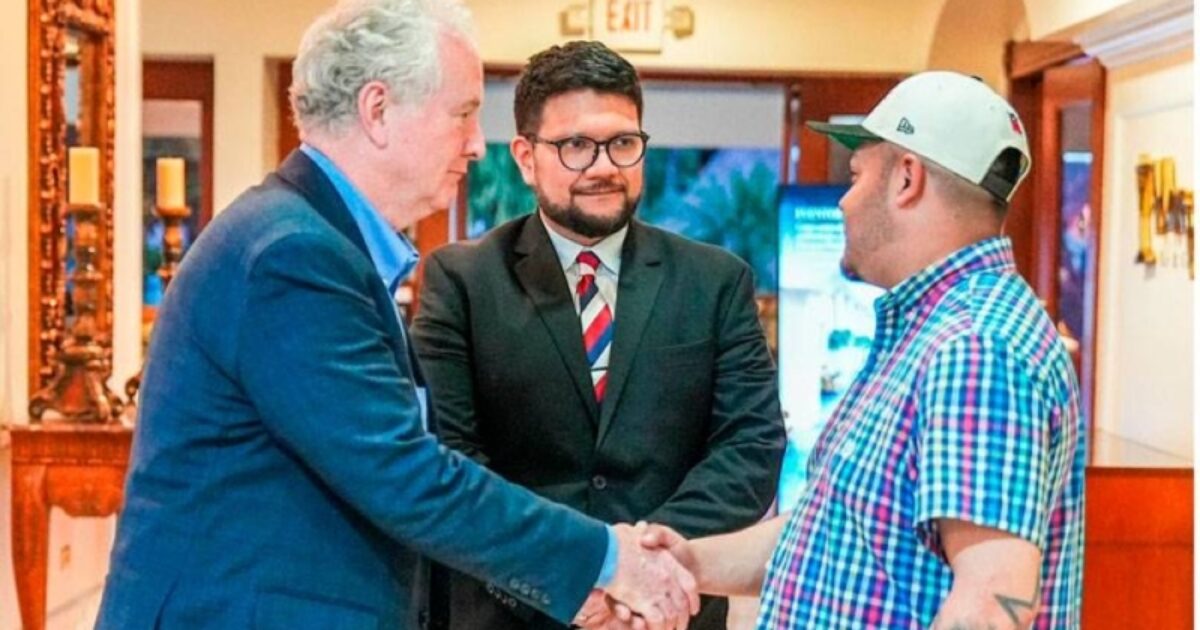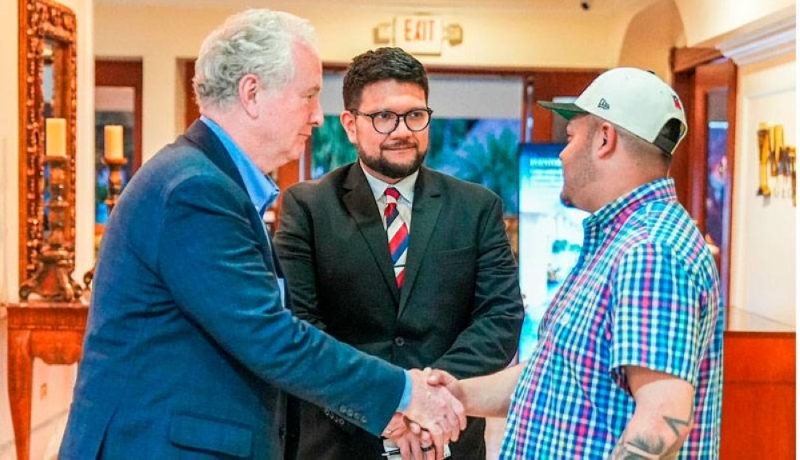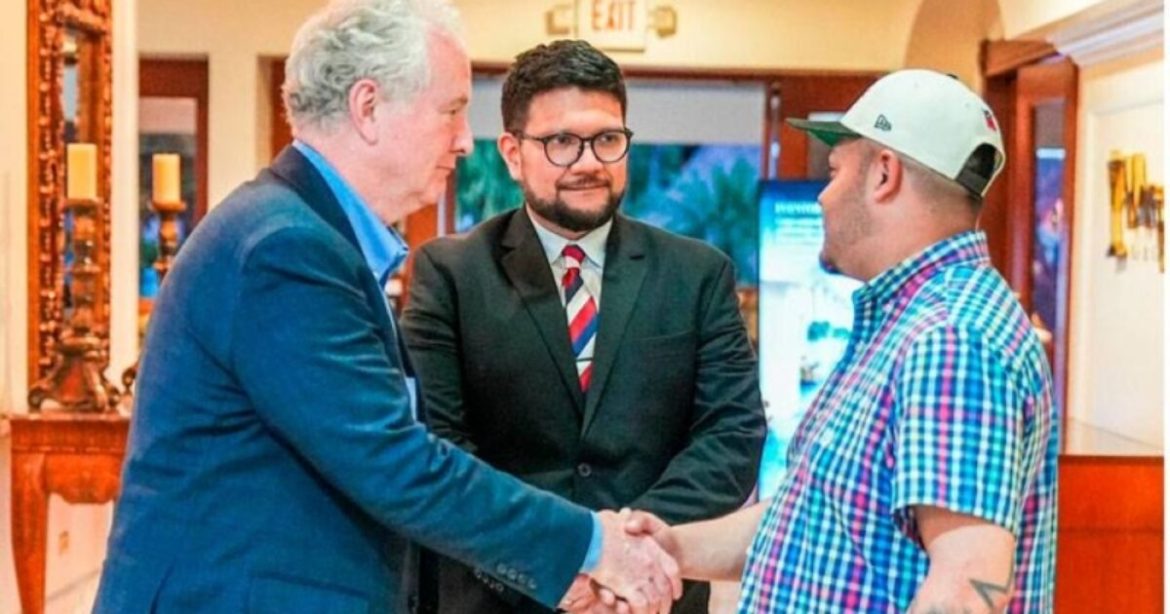

Much has been written about Kilmar Ábrego García’s deportation, the U.S. court rulings, and the terrorism detention facility in El Salvador where he was initially held upon arrival in his home country.
Yet amid the legal and political debate, one aspect remains underexamined: what would actually happen if García were returned to the United States. This article addresses that question directly.
While courts ordered the U.S. government to “facilitate” his return, they did not grant him the right to stay. In fact, under current law, García would remain deportable—to any country other than El Salvador. Facilitate the Return, Then Deport reflects that legal reality.
Kilmar Ábrego García, a Salvadoran national, entered the United States illegally in 2011 at age 16. He did not use a legal immigration channel and has never acquired lawful status in the U.S.; he is neither a citizen nor a green card holder. García remains a citizen of El Salvador.
In 2019, an immigration judge denied García’s asylum claim but granted him withholding of removal to El Salvador, finding a clear probability of future persecution by the Barrio 18 gang, which had extorted and threatened his family.
The same judge also found that García was a member of MS-13, a U.S.-designated Foreign Terrorist Organization. While such membership can disqualify someone from protection, the judge ruled that the threat from Barrio 18 outweighed this factor.
As a result, García was granted protection from deportation specifically to El Salvador, though he remained eligible for removal to another country.
The decision did not grant him asylum, permanent residency, or any path to citizenship, and the government did not appeal the ruling.
In March 2025, García was deported to El Salvador. A federal judge later ruled that this deportation violated the standing protection order, and the Supreme Court upheld that finding.
However, the Court did not challenge the legality of deporting García in general—only his removal to El Salvador, which had been explicitly prohibited. He could have been lawfully deported to another country that did not pose a persecution risk.
Although García has not been criminally charged in the United States, immigration law does not require a criminal conviction to justify deportation on national security grounds.
A substantiated finding of affiliation with a terrorist organization is legally sufficient. Descriptions in the media referring to García as a “Maryland man” or “father of three” do not bear on the legal analysis, which is based solely on statutory and security criteria.
Following the deportation ruling, U.S. District Judge Paula Xinis ordered the government to “facilitate” García’s return.
The Supreme Court affirmed that order, emphasizing that the government must take reasonable steps to restore his pre-deportation legal status but did not require that it forcibly bring him back. Judge Xinis later instructed the government to take “all available steps” to make his return possible.
The Department of Justice interpreted “facilitate” narrowly, arguing that El Salvador’s sovereignty limits U.S. action.
Critics have pointed to the fact that the U.S. provides approximately $6 million annually to support detention operations in El Salvador, suggesting that the United States could exert influence over García’s custody.
However, that payment is not made per detainee, so President Bukele’s government would receive no more or less money whether or not García is released.
Furthermore, García has been transferred from the Terrorism Confinement Center (CECOT) to another facility in Santa Ana, raising questions about whether the funding even applies to his current detention.
While some critics have suggested using U.S. aid as leverage, no court order mandates that the government withhold funding, and such action is not required under the legal definition of “facilitate.”
As of April 18, 2025, García remains in custody in El Salvador. President Nayib Bukele has publicly stated that García is a terrorist and that El Salvador has no intention of releasing him.
If García were returned to the United States, he would not have a valid immigration status. His withholding of removal order would need to be vacated through a formal process in immigration court before he could be deported to El Salvador.
He could potentially be present in the U.S. for legal proceedings but would not be eligible for lawful status or permanent residency. His alleged gang affiliation may also disqualify him from receiving parole or a temporary visa, and he could face indefinite immigration detention while awaiting removal to a third country.
Deportation to a third country would be legally permissible if one agreed to accept him, but García’s MS-13 designation complicates that option. Few, if any, countries are likely to admit someone identified by the U.S. government as affiliated with a Foreign Terrorist Organization.
No third-country arrangement has been reported, and absent such an agreement, any attempt to re-deport him to El Salvador would remain in violation of the court order.
The Trump administration maintains that it has complied with the facilitation order by attempting to coordinate with El Salvador. Officials argue that the U.S. cannot compel the Salvadoran government to release García and that nothing in the court’s ruling requires that he be returned or granted legal status in the United States.
The post Facilitate the Return, Then Deport: The Legal Reality of the Kilmar Ábrego García Case appeared first on The Gateway Pundit.

